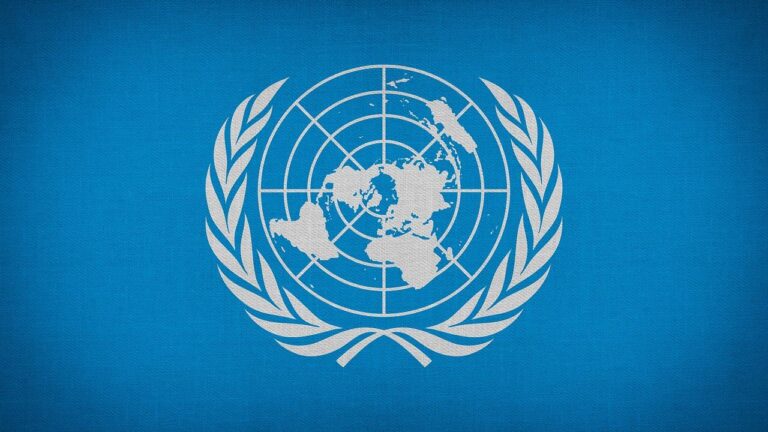The United Nations, or UN, is a global organization founded in 1945 to promote international cooperation and resolve conflicts worldwide. It currently has 193 member states, representing the majority of the world’s nations.
However, several states are not recognized as UN member states, and their status in the international community is a bit more complicated. These states, also known as “non-recognized states,” include Palestine, Abkhazia, and South Ossetia, and Northern Cyprus.
Some of these states have long histories of conflict and disputed borders, while others have more recently declared independence. Many of them are recognized by some countries, but not others, and they often face challenges regarding their international representation.
Despite these challenges, these non-recognized states continue to strive for recognition and representation on the global stage. Here, we take a closer look at each of these states and their efforts toward international recognition.
Table of Contents
South Ossetia and Abkhazia
South Ossetia and Abkhazia are two non-recognized states located in the Caucasus region of Eastern Europe. Both were once part of the Soviet Union but declared independence following the collapse of the USSR in 1991.
South Ossetia is located on the border of Russia and Georgia. The country has a majority Ossetian population and a long history of conflict with Georgia. In 2008, a brief but violent conflict between the two countries resulted in South Ossetia gaining de facto independence. However, it is not recognized as a state by Georgia or the majority of the international community.
Abkhazia, located is located on the Black Sea and also bordering Russia. The country has a majority of the Abkhaz population and has faced similar conflicts with Georgia. It declared independence in 1999. Like South Ossetia, it is not recognized as a state by the majority of the international community.
South Ossetia and Abkhazia are recognized as states by a handful of countries, including Russia, Nicaragua, and Venezuela. The United Nations or any other major international organization does not recognize them. Both states have made efforts toward recognition, but their ongoing conflicts with Georgia have made it difficult for them to gain widespread international recognition.
Nagorno-Karabakh
Nagorno-Karabakh is a non-recognized state located in the South Caucasus region of Eastern Europe. It is situated within the internationally recognized borders of Azerbaijan, but ethnic Armenians predominantly populate it.
The region has a long history of conflict with Azerbaijan, dating back to the Soviet era when it was an autonomous region within Azerbaijan. In 1988, as the Soviet Union collapsed, Nagorno-Karabakh declared its independence from Azerbaijan, but any international organization did not recognize it.
In 1992, a full-scale war between Nagorno-Karabakh and Azerbaijan broke out, lasting until a ceasefire was signed in 1994. Despite the ceasefire, tensions between the two sides have continued, and Nagorno-Karabakh remains an internationally unrecognized state.
Nagorno-Karabakh is only recognized as a state by a few countries, including Armenia, which has provided military and economic support to the region. It is not recognized by Azerbaijan or any other major international organization. The country has made little progress toward recognition in the international community.
Transnistria, or the Pridnestrovian Moldavian Republic
Transnistria, also known as the Pridnestrovian Moldavian Republic, is a non-recognized state located in Eastern Europe. It is situated between Moldova and Ukraine, with a majority Russian and Ukrainian population.
Transnistria declared independence from Moldova in 1990, but no international organization recognized it as a state. It is only recognized as a state by a few countries, including Russia, which has provided military and economic support to the region.
Transnistria has struggled to gain international recognition due to its ongoing conflict with Moldova. It has made efforts toward recognition, but these have been largely unsuccessful. As a result, the region remains an internationally recognized state, and its status in the international community is uncertain.
New Russia, also known as the Union of People’s Republics
New Russia, also known as the Union of People’s Republics, is a non-recognized state located in Eastern Europe. It is situated in the eastern part of Ukraine, with a majority Russian and Ukrainian population.
New Russia declared independence from Ukraine in 2014, following the annexation of Crimea by Russia. It has not been recognized as a state by any international organization and only as a state by a few countries, including Russia.
New Russia has struggled to gain international recognition due to the ongoing conflict in Ukraine and its lack of recognition from the international community. It has made efforts toward recognition, but these have been largely unsuccessful.
The Turkish Republic of Northern Cyprus
The Turkish Republic of Northern Cyprus is a non-recognized state located on the island of Cyprus in the Eastern Mediterranean. It declared independence from Cyprus in 1983 following a coup and invasion by Turkey.
However, Northern Cyprus has not been recognized as a state by any international organization, including the UN. It is only recognized as a state by Turkey, which has provided military and economic support to the region.
The United Nations recognition brings a sense of legitimacy on the global stage
Several states worldwide are not recognized as United Nations member states, and their status in the international community is often complex and disputed. These states have unique histories and ongoing conflicts that have made it difficult for them to gain widespread recognition.
Despite these challenges, these states continue to strive for recognition and representation on the global stage. They have made efforts towards recognition, but the process has been slow and often unsuccessful.
The importance of international recognition cannot be underestimated, as it provides a sense of legitimacy and representation on the global stage. It is crucial that efforts toward resolving conflicts and achieving recognition continue to promote peace and cooperation in the international community.
Read also: Not only Ukraine, 10 other conflicts happening in the world today












